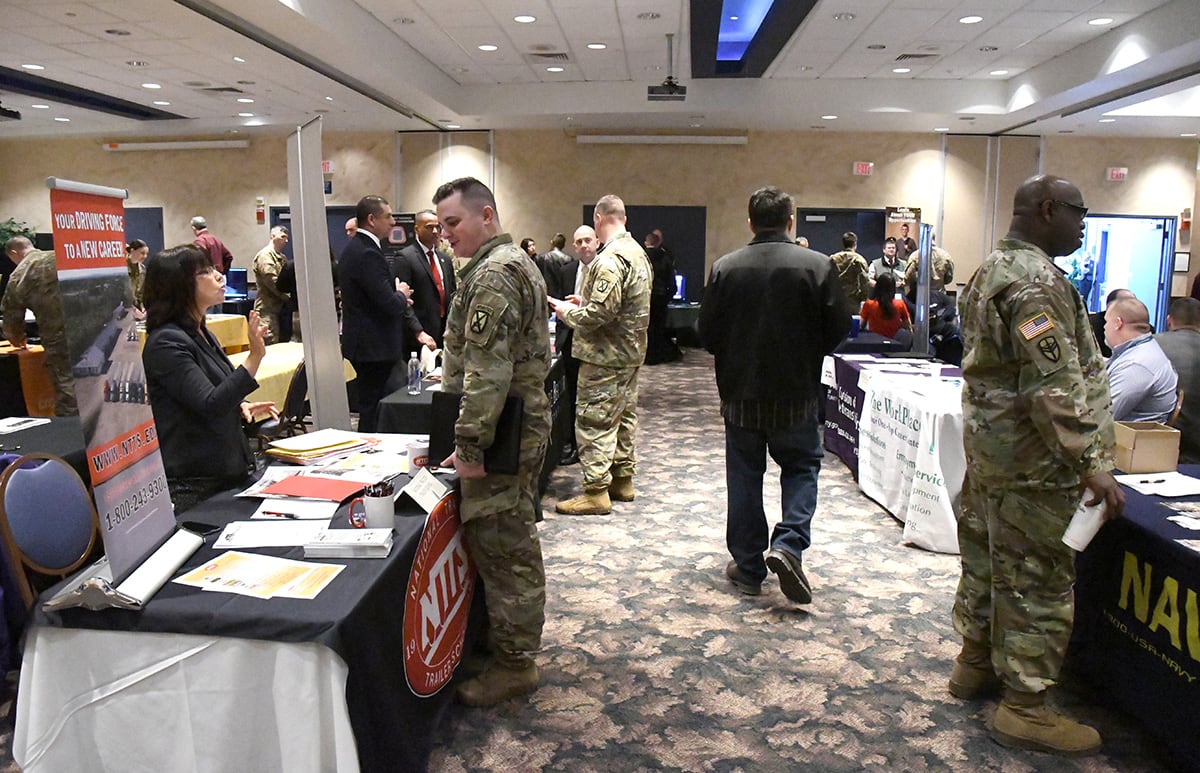Tens of thousands of troops, veterans and civilian defense workers will see large federal loan debts reduced or erased under changes to the Public Service Loan Forgiveness program announced Wednesday.
The move comes amid criticism of the program — designed to provide financial relief to federal workers who make regular payments on their federal loans — for being too cumbersome and unforgiving instead of being a benefit of public service.
In response, the Department of Education announced changes to “restore the promise” of the program and “make it easier for members of the military to get credit toward forgiveness while they serve.”
While the loan forgiveness program is not solely focused on service members, they make up a significant portion of program recipients.
Officials said at least 17,000 current troops will benefit from the new rules, but the number could be much higher as staff combs through various loan accounts to see how many of the estimated 550,000 borrowers expected to benefit had some military service.
Under current rules, loan forgiveness recipients must either work full-time at a government job — federal, state, local and military posts are all included — or a not-for-profit, non-partisan organization such as the Peace Corps. It covers individuals who have direct loans or previously consolidated federal student loans and have been paying down the debt for the last 10 years.
The rationale behind the program is to give those public servants financial relief, rather than force them to leave those public service jobs in an effort to erase their debts.
But in the past, rules surrounding those repayments required strict monthly guidelines and only covered certain types of loans. Earlier this week, 60 Minutes profiled multiple service members who paid back tens of thousands of dollars over a decade, only to discover at the end that their loan forgiveness applications had been rejected on technicalities.
Education Department officials Wednesday’s announcement is designed to prevent that from happening again.
“These changes are important steps toward a better and stronger PSLF program, one that will move away from the current situation in which too few borrowers receive forgiveness, and too many do not receive credit for years of payments they made because of complicated eligibility rules, servicing errors or other technicalities,” they said in a statement.
Department leaders also promised to devote extra attention to members of the military.
Starting in 2022, staff will match department data with other federal databases to ensure that all federal workers (including troops) automatically qualify for the debt relief. That means those individuals could see their debts suddenly erased, without any work on their part.
“Military service members and other federal employees devote themselves to serving the United States, and we should make it as easy as possible for them to get [financial relief],” the department announcement stated.
The changes also include broadening the types of federal loans previously eligible for forgiveness and relaxing strict monthly repayment rules.
RELATED

Until now, roughly 16,000 individuals have qualified for the Public Service Loan Forgiveness program since it was launched in 2007.
Education Department officials said about 22,000 individuals are expected to benefit from the changes immediately, erasing about $1.74 billion in debt. Another 27,000 will need to certify their employment to get immediate relief.
The new rules will be in effect through October 2022, under emergency provisions. However, officials are expected to codify many of the changes over the coming year.
More information is available on the Public Service Loan Forgiveness program web site.
Leo covers Congress, Veterans Affairs and the White House for Military Times. He has covered Washington, D.C. since 2004, focusing on military personnel and veterans policies. His work has earned numerous honors, including a 2009 Polk award, a 2010 National Headliner Award, the IAVA Leadership in Journalism award and the VFW News Media award.




